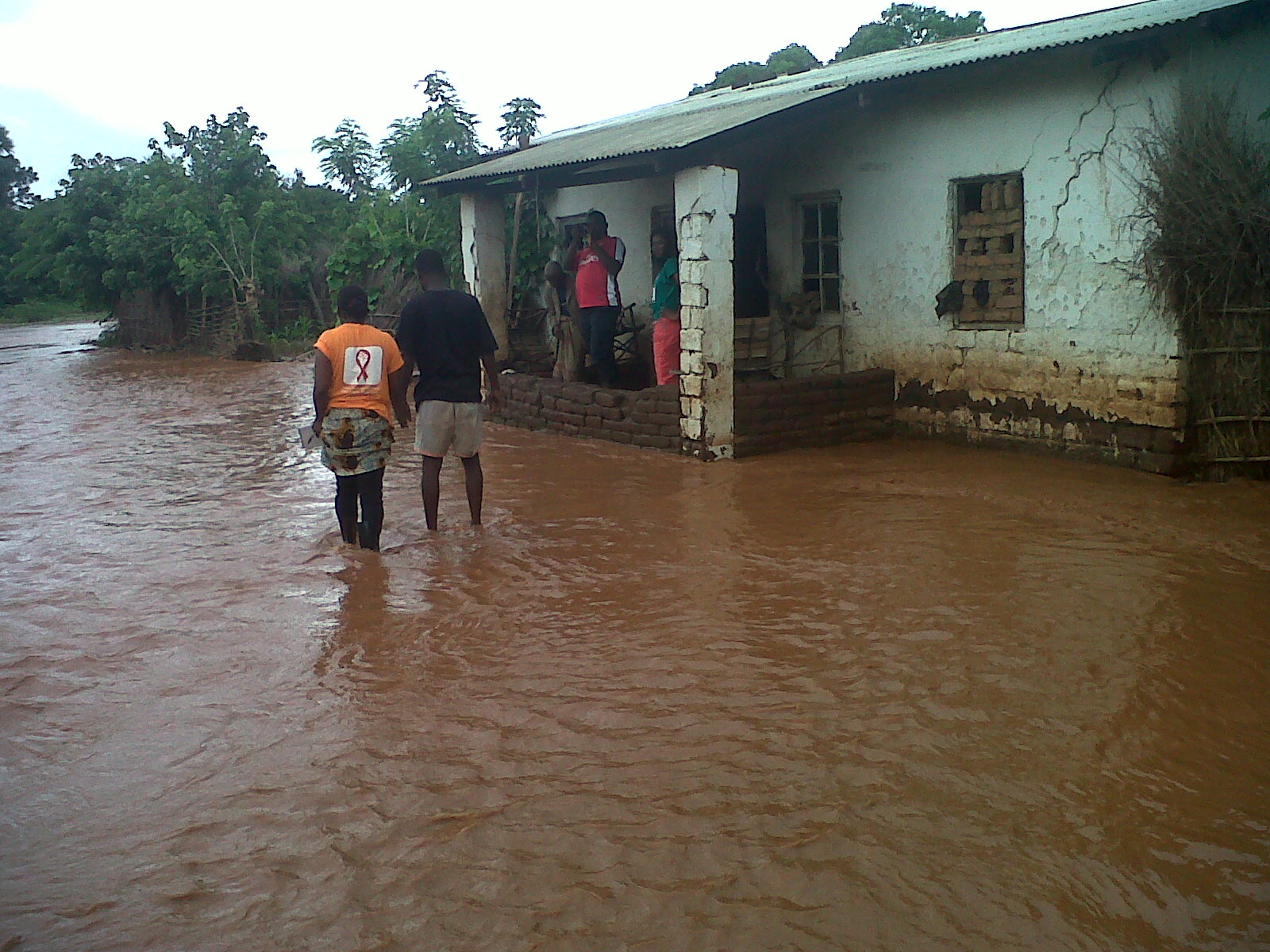The Poverty paradox of child marriages
Tumalisye Budalla (not real name) from Traditional Authority Bwananyambi in Mangochi is just 14 years old and on meeting her, one would expect that the conversation will centre on issues of education, adolescence, and her life ambitions career-wise when she grows up.
But Tumalisye will surprise you with her indifference to such futuristic talk. For her, she is already in living her future though not her ideal one. She is young by age yes, but in terms of responsibilities and life experiences, she is as old as any married woman can if not more.
Her tender head resting on her young shoulders is working overtime to solve problems her peers have never heard of: She has to look after her sickly child’s needs as a single mother; push her weak body beyond limits to do piece works to earn her living; and work her brain overtime to survive the pouring ridicule she gets from the community.
Just like many girls her age in Malawi and the sub-Sahara African region, Tumalisye was forced into marriage by her parents who looked at her as a burden that was weighing heavily on her father and mother’s parental shoulders. This was despite her insistency to continue with her education which she believed was her only gateway to a better, independent and self-reliant future.
But despite all her protestations, her parents could not relent on their decision so a rich man, by their village standards, and old enough to be her father, was identified to marry her. The parents, as they had done with Tumalisye’s two elder sisters, were happy as that meant a relief on their responsibility to look after the daughter. For the parents, it also meant handouts from the older and wealthy son-in-law.
Apparently, most parents in Mangochi and most rural parts of Malawi believe that marrying off their children to wealthy men alleviates poverty in the household through handouts they get from the girls’ suitors and through the relief they get once the responsibility to look after their children is handed over to the girl’s husband.
But HIVOS Gender and SRHR Programme Officer Rebecca Mahlunge recently told a Southern and Eastern Africa Youth Conference in Lilongwe on HIV/AIDS, Sexual and Reproductive Health Rights that child marriages have never been a source of poverty alleviation to parents “whichever way one looks at them”.
According to Mahlunge, there is, in fact, nothing good about child marriages.
And agreeing with Mahlunge is Malawi’s President, Joyce Banda, who outlined a number of problems that come with child marriages when she recently opened a maternity wing shelter at Mulanje District Hospital constructed by Standard Bank.
According to President Banda, her involvement in Safe Motherhood programmes has shown that increased incidents of HIV transmission, maternal deaths, infant mortality, sexual and domestic violence and unwanted pregnancies resulting in unsafe and illegal terminations, are common among girls in child marriages. Probably, parents that push their children into early marriages overlook these things.
On the issue of poverty, Mahlunge, in her presentation entitled “Sexual and Reproductive Health Rights (SRHR), Gender and HIV on Child Marriages; Southern Africa Region Perspectives”, observed that poverty remains one of the major reasons for high prevalence of child marriages.
She, however, argued that experience show that despite marrying off their young girls, parents of such children do not have their family fortunes improved and neither do the economic fortunes of the girls improve.
“In reality what happens is that the gifts that the parents receive from the girls’ suitors, if they are there, are only available at the beginning of the whole process but once the girl is in marriage, such handouts stop. So for the poverty to go, how many girl children will a family have to marry off? How sustainable will that be?
“What we have observed is that since the girls are married off before attaining enough education, they remain dependent on their husbands for everything and this perpetrates poverty in their families as there is only one bread winner. Again, since the husbands have all the authority in such families, they can go on to marry second or third wives or indeed divorce the girls leading to more poverty to the girls,” Mahlunge told the conference.
In fact, this is what happened to Tumalisye as just after four years in the forced marriage, the husband disappeared when she needed him most owing to her sickness following birth complications for their second born child who died three months after birth. Worse still, Tumalisye was left to fend for herself and a sickly three year old child yet she had no reliable source of income.
According to Mahlunge parents should not abrogate their responsibilities by marrying off their children.
“Just as elephants do not find their tasks heavy, parents too should not see their children as a burden,” she said.
She also bemoaned the tendency by men to look for wives they can control and in the process going for women younger, less educated and less economically empowered than them for wives. Mahlunge said it appears men are benefitting more from child marriages than women.
She urged Africa to stop perpetuating bad aspects of our culture, tradition, social “norms”, and religious beliefs by shaping them to reflect modern day demands and challenges.
On the way forward, Mahlunge said programs that focus on poverty reduction among households alone cannot end child marriages, arguing that there is need to address the root causes like the way our communities operate, the systems, the thinking and the legal instruments.
Although available data shows that child marriage cases are high in Africa, the situation could be worse because data is scarce as most marriages are not registered and most children have no birth certificates, making it difficult to establish their ages at marriage time.
Mahlunge, however, said irrespective of any justifications, child marriages are a violation of children’s rights and international conventions that most governments signed. These include rights to education, good health, information for their development, rest and leisure and right to participate freely in cultural activities.
She noted that youths in child marriages are separated from parents and peers and this plays negatively on the psyche as they go through isolation and mental torture. Although emphasis at the conference was on Africa, child marriage is a global problem. To illustrate this, Mahlunge said 15 of the world’s 20 child marriage hotspots are in Africa, meaning that in Africa, despite the age of majority being at 18, more children are burdened with more responsibilities before they reach this age.Mahlunge wondered why most African cultures believe that a girl is old and responsible enough to marry at 14 when the same societies consider her too young at the same age to handle less demanding things like driving, employment and voting. She said this is a disconnect that needs to change.
It was learnt that when people talk about child marriages, the emphasis is mostly on young girls because although some young boys are also involved, their numbers do not compare with those of girls.
Mahlunge also related issues of child rights and SRH, saying married children miss out on education, die poor and die earlier. They also get early pregnancies as our culture looks at sex as not just enjoyable but a reproduction issue hence most children in marriages are forced to have children before their time, leading to more deaths among them during child birth.
She also noted that child mortality is also high among teenage mothers’ children. These teenage mothers also suffer from a horde of other health complications like disabilities, loss of blood and fistula.
On HIV/AIDS, Mahlunge said girls in child marriages are more likely to contract HIV and other STIs because of lack of a say in their sexual life as most of them are married to older men who intimidate or threaten them. The high poverty prevalence in such marriages, owing to lack of education and economic empowerment by the girls, makes them more vulnerable to men and force them to stick with unfaithful husbands to avoid destitution. They also suffer mental health due to handling of responsibilities beyond their age.
Surprisingly, despite visible disadvantages child marriages are continuing because of tradition, poverty, lack of rights observance and strict enforcement of laws or indeed conflicting laws on the definition of a child.
No wonder, at the end of the youth conference in Lilongwe participants called for the minimum marriage age to be pushed up to 21 years.
Speaker of Parliament Henry Chimunthu Banda, who assured the conference that the minimum marriage age bill will be tabled in the current sitting of the House, hailed the resolution, saying it will help to guide MPs when deliberating on the bill.
Hopefully, the passing of the minimum marriage age bill will spell the end of the many paradoxes on the subject that have directly or indirectly perpetrated the practice and pushed the lives of many innocent girls like Tumalisye into an abyss of untold miseries.



Comments
Post a Comment
Leave a comment